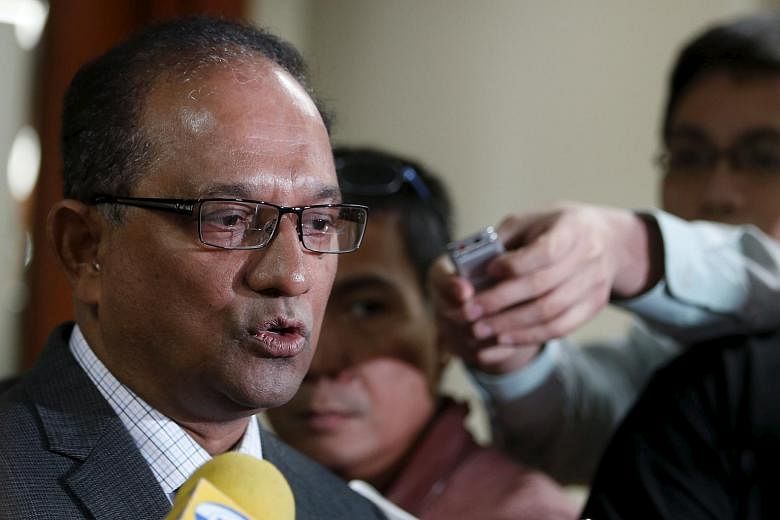The globally publicised US$81 million (S$1.35 million) money-laundering scandal is enough international embarrassment for the Philippines.
The least the government can do now is to return the money as fast as the legal process will allow.
Bangladesh has expressed worry that the return of the money stolen by hackers from its central bank-which found its way into the Rizal Commercial Banking Corp. branch on Jupiter, Makati, and then was transferred to local casinos-would be delayed.
Ambassador John Gomes told the Inquirer of his hope that by April or May-or before the next president assumes office-the money could be returned since most of it has been accounted for.
He was specifically concerned about "delays that could be avoided," considering the long legal process involved in forfeiture cases.
Under existing laws, the Anti-Money Laundering Council has to file a civil forfeiture case and secure a court order before the government can turn over to Bangladesh the recovered funds.
The Bangladesh government, in turn, has to formally intervene in the case and claim ownership of the money so that the court can order the return of the funds to it.
Otherwise, the money will be declared a property of the Philippines.
According to Ambassador Gomez, their embassy, on behalf of the Bangladesh government, is submitting the papers to formally claim the surrendered and confiscated amounts as well as the remaining funds believed to be still in the country.
The AMLC also filed last April 18 a petition for civil forfeiture against casino junket operator Kam Sin Wong, his Eastern Hawaii Leisure Co., Centurytex Trading, RCBC, and Philippine National Bank.
But thus far, the court has only directed authorities to preserve or freeze the money.
Judge Reynaldo A. Alhambra of the Manila Regional Trial Court set on May 2 a summary hearing on the asset preservation case.
We do not understand why the court cannot set an earlier date given that the AMLC has clearly informed it that the funds involved are "related to an unlawful activity of hacking or cracking" under the E-Commerce Act, or a predicate offence under the Anti-Money Laundering Act.
Besides, ownership of the money is not in dispute.
Frozen by the court thus far are the P4.46 million (128,751) in PNB under Wong's account; P5.74 million in PNB under the account of Eastern Hawaii Leisure; P19,983.63 in RCBC under Centurytex Trading; and the first two tranches of money turned over by Wong for safekeeping at the AMLC (US$4.63 million on March 31 and P38.28 million on April 4).
Last Monday, Eastern Hawaii Leisure returned another P200 million to the AMLC. Wong is expected to surrender another P250 million.
Solaire Resort and Casino Manila, which got part of the stolen funds, also froze the P107-million account of the junket operator named by Wong as the brains behind the heist, and confiscated another P1.35 million from the rooms of the group's players.
Solaire had said that it was only waiting for a court order to dispose of the money.
Only US$17 million of the entire $81 million in "dirty money" is unaccounted for.
At a hearing by the Senate blue ribbon committee, Wong has expressed suspicion that this amount is still with Philrem, although the remittance company denied this.
What makes this scandal worse is the fact that the money was stolen from an impoverished nation that needs every dollar for the upkeep of its people.
Ambassador Gomes pointed out that the money could fund Bangladesh's infrastructure development, the uplift of women in the villages, and the education of children.
The stolen money was earned by Bangladesh's working class, he said, citing the five million workers in its export-oriented garments industry, the eight million Bangladeshis working overseas and sending money home, and its foreign exchange receipts from the export of rice, potatoes and fish.
Gomes could only plead with the various players involved-including the casinos and Philrem-to return whatever money is still left with them.
For the Philippines, there is no reason for the forfeiture case to drag on.
The court can summarily dispose of it since no other claimant in his or her right mind would come forward to contest the forfeiture.
The money has been established as part of the funds stolen by hackers from the central bank of Bangladesh.
The global community is watching how the Philippines will handle this cyberheist. This is not an occasion to display its brand of slow justice.
The Philippine Daily Inquirer is a member of the Asia News Network, an alliance of 22 newspapers.

